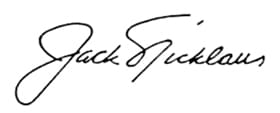
Thailand’s trademark registrar and the Board of Trademarks have, in the past, rejected several trademark applications consisting of the personal names, surnames, or full names of individuals, displayed in block letters, on the basis that they were insufficiently distinctive. These included applications for marks such as CATHERINE ZETA-JONES and PARIS HILTON. At the same time, registration has been granted to several names in block letters, such as BECKHAM, JIMMY CHOO, and CHRISTIAN PAUL. These seemingly contradictory rejections and acceptances raise questions of whether an application for an individual’s name in block letters can actually be registered in Thailand.
The Trademark Act addresses the registration of a personal name and surname under section 7, which relates to the distinctiveness of the mark. One of the provisions states that a mark can be deemed distinctive if it consists of “a personal name, a surname of a natural person that is not, according to its ordinary signification, a surname, a full name, a name of a legal entity under the relevant law, or a trade name represented in a special manner and is not directly descriptive of the nature or characteristics of the goods” (emphasis added).
The Examination Guidelines of the registrar provide the following examples of names that are capable of registration:
 |
 |
Although these examples seem to support the view that a name represented in a special manner can be registrable, section 7 of the Trademark Act can be interpreted in another way—that is, that the phrase “represented in a special manner” only applies to trade names, not to other types of names. Also, it should be noted here that the Examination Guidelines are not law—merely persuasive guidelines which examiners follow when assessing applications.
A few cases relating to this issue have been heard by the courts. In 2017, in Supreme Court Case no. 617/2560 between a brand owner and the Department of Intellectual Property (DIP), the Supreme Court ruled in favor of the brand owner and affirmed the Intellectual Property and International Trade (IP&IT) Court’s judgment that the personal name VALENTINO, in its non-stylized form, is sufficiently distinctive to be registrable. In doing so it held the decision of the examining registrar and the Board of Trademarks to be incorrect, and opined that the wording “represented in a special manner” in section 7 of the Trademark Act should be applied only to trade names—not to the names of individuals.
However, the DIP continues to maintain the contrary interpretation that the wording “represented in a special manner” applies to all the categories listed in the relevant paragraph of section 7, which includes personal names, surnames of natural persons, names of legal entities, and trade names. The DIP strongly disagreed with the above Supreme Court decision and has continued its practice of rejecting the personal names or surnames of individuals if not presented in a stylized form. In fact, the DIP was successful in its arguments in another, similar case (no. 3499/2561), with the Supreme Court ruling that the mark JENNIFER ANISTON was not presented in a stylized form and could not be registered. The Supreme Court in this case clearly stated that the mark, which consists of a personal name and a surname, would be considered distinctive only if it was presented in a special manner and if it was not directly descriptive of the nature or characteristics of the goods to which it was being applied. The Supreme Court noted that although the mark JENNIFER ANISTON is not descriptive of goods, the mark is presented in block letters. Therefore, the mark was determined to be non-distinctive. However, the Supreme Court further decided that the mark JENNIFER ANISTON could be registered because it had gained secondary meaning through use (and much evidence of this use was submitted). As these examples show, decisions by Supreme Court judges in Thailand can differ from one case to another.
Interestingly, in the same year that the Supreme Court decided the JENNIFER ANISTON case, the Court of Appeal rendered its own decision regarding the VALENTINO mark, ruling in favor of the brand owner. This case involved a similar issue to the VALENTINO case described above but concerned a different trademark application. Under this Court of Appeal decision (case no. 2716/2561), both the IP&IT Court and the Court of Appeal used the same criteria as the Supreme Court did in the case described earlier (no. 617/2560), and held that the term “represented in a special manner” applies only to trade names. In this case, the mark VALENTINO (in block letters) was found to be distinctive. This Court of Appeal decision has been deemed final, as the DIP did not ask the Supreme Court for permission to appeal the decision further.
As is demonstrated above, this issue of registering an individual’s name is still treated inconsistently in the courts, which creates challenges for both brand owners and the DIP. The registrar and the Board of Trademarks continue the practice of rejecting applications for names and surnames of individual persons that are not presented in a stylized form. For the time being, if a brand owner wishes to register a trademark for their name or surname, it is advisable that the mark be represented in a special manner.
